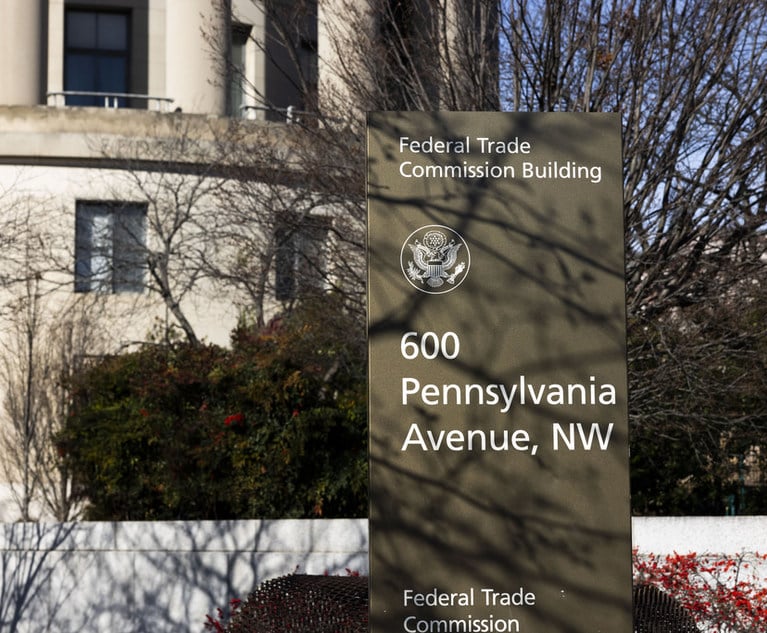WASHINGTON—The most likely path to enactment oflegislation reauthorizing a federal backstop for terrorism riskinsurance that insurers can live with is House de facto acceptanceof the preferable Senate bill, through inclusion of it in amust-pass congressional resolution (CR) needed to keep thegovernment running through the transition to a new Congress.
|"I am not sure there will be negotiations [between conflictingSenate and House versions of the Terrorism Risk Insurance Act(TRIA) reauthorization) bill," said Jimi Grande, senior vicepresident of federal and political affairs for the NationalAssociation of Mutual Insurance Companies. "This maintains the $100million trigger, but also includes significant reforms to theprogram."
|"We expect TRIA to be reauthorized before Congress adjourns sinedie in December," added Nat Wienecke, senior vice president,federal government relations at the Property Casualty InsurersAssociation of America (PCI). "It is possible that TRIA is attachedto a CR if they run out of time, though there are many that wouldlike to see it go through regular order."
|Grande, interviewed at last week's annual NAMIC convention, saidthat Congress will return to work after the mid-term elections Nov.12, but will spend that first week or two organizing themselves aspolitical parties.
|He said they will then go home for Thanksgiving. "When theyreturn from Thanksgiving, they will only have 8-9 days (tonegotiate) and I haven't seen anything that will give me anyconfidence that the House and Senate will do any negotiatingbetween a Senate bill that had 93 votes and a House bill that can'tget enough support to get on the House floor," Grande said.
|Wienecke said the lame duck session "is going to be a busytime," adding, "You could look back for many years and notsee Congress dealing with three insurance-specific bills in finaldays of the legislative session."
|He said PCI "remains optimistic" that the House and Senate willwork out a plan to get TRIA, legislation creating the NationalAssociation of Registered Agents and Brokers (NARAB) and a billclarifying that the Federal Reserve can oversee insurers usingStatutory Accounting Principles (SAP) to the president's desk forsignature.
|"It's a matter of parliamentary mechanics and time," Wieneckesaid.
|The Senate bill is S. 2244, the Terrorism Risk Insurance ProgramReauthorization Act of 2014. It passed the Senate in July by a 93-4vote.
|The Senate raised the insurer co-pay from the current 15 percentto 20 percent and the mandatory recoupment from $27.5 billion to$37.5 billion [over five years]. But, it retains the current $100million trigger for federal involvement in a terrorism event.
|The House bill H.R. 4871, the TRIA Reform Act of 2014. That billcalls for gradually increasing the program trigger for allnon-nuclear, biological, radiological, and/or chemical (NBCR)events, from $100 million to $500 million by 2019, which industryofficials say effectively phases out the program for non-NBCRevents.
|It passed the House Financial Services Committee in July on aparty-line 32-27 vote, but a head count in September by the HouseRepublican leadership failed to produce enough Republican supportto get the bill through the House without Democratic support.
|And Democrats signaled they would not support the radical billforced through the House FSC with no Democratic support.
Want to continue reading?
Become a Free PropertyCasualty360 Digital Reader
Your access to unlimited PropertyCasualty360 content isn’t changing.
Once you are an ALM digital member, you’ll receive:
- All PropertyCasualty360.com news coverage, best practices, and in-depth analysis.
- Educational webcasts, resources from industry leaders, and informative newsletters.
- Other award-winning websites including BenefitsPRO.com and ThinkAdvisor.com.
Already have an account? Sign In
© 2024 ALM Global, LLC, All Rights Reserved. Request academic re-use from www.copyright.com. All other uses, submit a request to [email protected]. For more information visit Asset & Logo Licensing.








